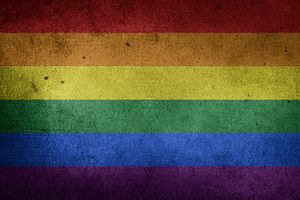Last month, India’s Supreme Court unanimously struck down a colonial-era law criminalizing consensual gay sex, calling it “indefensible.” The decision paved the way for citizens in other former British colonies, including Singapore, to challenge the constitutionality of similar laws in their own countries.
For all its economic success, first-world healthcare, and a top of the class education system, the Singapore government remains behind in protecting its LGBT community by retaining section 377A, an outdated law that criminalizes sex between men, on its books.
Singapore has a highly educated, discerning, and pragmatic population, with few people holding radical views on religion or ideology. Still, it has remained a conservative society where the majority have been slow to accept the LGBT community.
Most people opposing the repeal of section 377A do not necessarily think gay men should be thrown in jail. (The law is silent on sexual activity between two women, making it all the more unusual). The majority of Singaporeans, however, have wrongly conflated the repeal of the section with acceptance of marriage equality or adoption of children by same-sex couples, and that is what they see it as a threat to traditional family values.
For instance, the Archbishop of Singapore said he would support the repeal of 377A if “…no further demands [were] made to legalize same-sex unions, adoption of babies by same-sex couples, surrogacy, or to criminalize those who do not support the homosexual lifestyle.”
The fear that the repeal of 377A will quickly and automatically lead to equal rights for same-sex couples in all other aspects is misguided. Singapore will have debates on such issues when it is ready.
Further, the suggestion that gay rights advocates are pushing to “criminalize” those who do not support homosexuality is disingenuous.
Keeping section 377A is not going to silence a growing minority in Singapore who support the LGBT community. If anything, it has galvanized them. The number of people attending the annual gay pride rally in Singapore has grown steadily over the last decade.
The recent Indian Supreme Court’s decision has ignited another round of debate in Singapore.
Minister for Home Affairs and Law K. Shanmugam, for the first time, shared his personal opinion on section 377A, noting that when it comes to “people’s lifestyles … [and] sexual attitudes … [we] really should be careful in treating them as criminal or criminalizing that.”
The Singapore government, on its part, has promised not to proactively enforce 377A.
This, however, raises a number of issues.
First, with section 337A in place, a gay man is not only afraid of being prosecuted, but of being given equal protection under the law. If he were a victim of rape, domestic violence, or harassment would the judicial system be able to afford him the same protections a straight man would get? Would a gay man be willing to submit to the court evidence that revealed a criminal act even if he is not prosecuted for it?
Second, as two former attorneys general, Walter Woon and V. K. Rajah, have pointed out, the government’s assurance that section 377A will not be enforced casts doubt on the attorney general’s independence from the government and undermines the rule of law. This forced the current attorney general to clarify that the government has not removed or restricted prosecutorial discretion for Section 377A.
Third, there is a question of whether the law is in breach of parts of the Singapore Constitution concerning liberty of a person and equal protection. Singapore’s most famous diplomat, professor, and international lawyer, Tommy Koh, added fuel to the raging debate by encouraging the gay community, through Facebook, to challenge the constitutionality of section 377A. When reminded by a user that a similar challenge was struck down back in 2014, he simply replied: “Try again.”
In a country where the bureaucracy runs like clockwork and the different organs of state often work in lock step, such public disagreement between senior members of the establishment may be a sign that change is in the air.
Singaporean DJ Johnson Ong, inspired by Koh’s comments, filed a constitutional challenge last month. The case is likely to be heard in the first quarter of next year.
Prime Minister Lee Hsien Loong’s view is that the retention of section 377A is an “uneasy compromise” with “legal untidiness.”
Perhaps the government is privately hoping that the courts find section 377A unconstitutional, helping them get rid of a divisive law they did not create, do not support, and will not enforce.
Chirag Agarwal is a former Singaporean diplomat who is currently working in Australia as a public policy consultant.

































